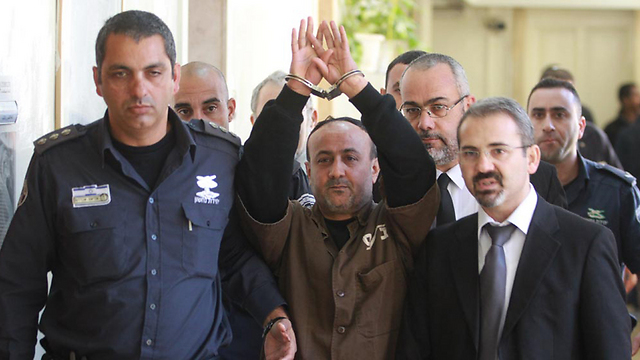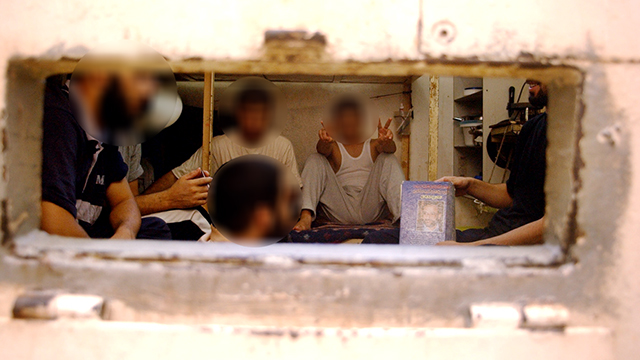
Barghouti explains hunger strike in New York Times Op-ed
In a scathing Op-ed for the New York Times, Marwan Barghouti outlines the 'abuses' and 'colonial' occupation Israel conducts against Palestinians as reasons for engaging in a hunger strike.
Marwan Barghouti, convicted terrorist and the main instigator of the strike, wrote an opinion piece for the New York Times in which he explained why prisoners are conducting the hunger strike.
Barghouti claims, "There is no choice but to go on a hunger strike."
The majority of the prisoners participating in the hunger strike are members of Fatah and the Popular Front for the Liberation of Palestine (PFLP). According to prisoners, the strike is indefinite.
"Having spent the last 15 years in an Israeli prison, I have been both a witness to and a victim of Israel’s illegal system of mass arbitrary arrests and ill-treatment of Palestinian prisoners. After exhausting all other options, I decided there was no choice but to resist these abuses by going on a hunger strike," wrote Barghouti in the New York Times.
Barghouti is a prominent figure in the Fatah movement. His leadership and charisma were seen as a driving force behind the Palestinians’ last intifada, or uprising, against the Israelis launched in late 2000.
Barghouti has been accused of founding the al-Aqsa Martyrs' Brigade and being the head of Tanzim, both of which have murdered dozens of Israelis in suicide bombings and other terrorist attacks.
The New York Times went on to refer to Barghouti as a "Palestinian leader and parliamentarian."
After hundreds of prisoners joined the strike Sunday and on Monday, IPS officials announced that disciplinary measures will be taken against those who are striking.
In a statement, IPS officials said, "A hunger strike in the prison endangers the health and life of a prisoner in the custody of the state, which is responsible for the safety of the prisoner. It also violates the order and discipline in the prisons. Especially an organized hunger strike."
Disciplinary measures include the confiscation of property granted as a privilege, such as radios, television and other electrical equipment, and the confiscation of food purchased in the prison canteen.
According to Barghouti in his article, "Hunger striking is the most peaceful form of resistance available. It inflicts pain solely on those who participate and on their loved ones, in the hopes that their empty stomachs and their sacrifice will help the message resonate beyond the confines of their dark cells.
"Decades of experience have proved that Israel’s inhumane system of colonial and military occupation aims to break the spirit of prisoners and the nation to which they belong, by inflicting suffering on their bodies, separating them from their families and communities, using humiliating measures to compel subjugation. In spite of such treatment, we will not surrender to it."
(Translated and edited by Fred Goldberg)












